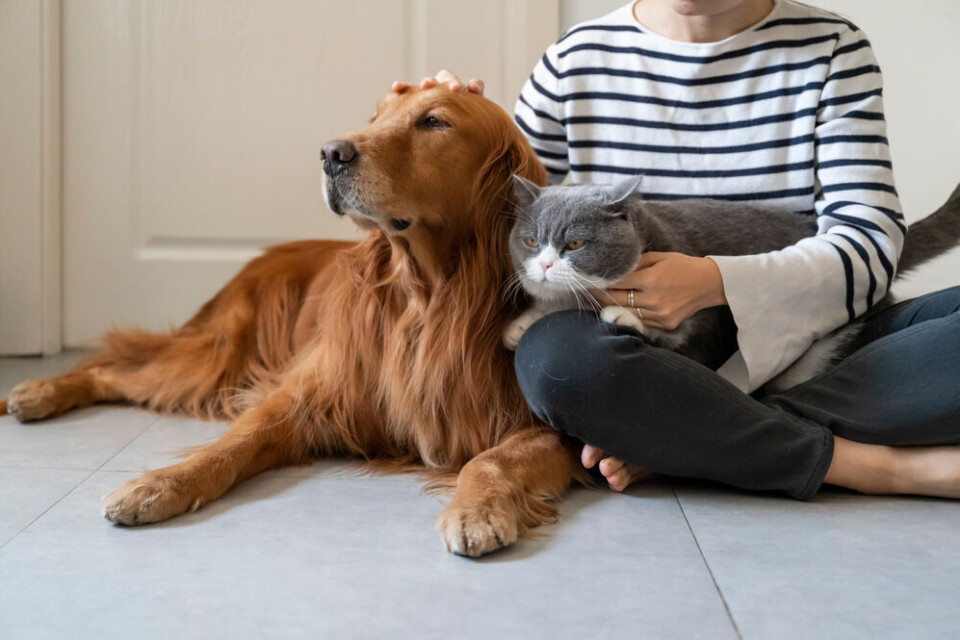-
Learning French: Have you ever dreamt in your target language?
From passive listening to active speaking, dreaming in French can indicate you are regularly practicing it
-
Learning French: what does fastoche mean and when should it be used?
Plus, can you guess the meaning behind more simple slang terms ending in -oche
-
Learning French: when and why do we say montrer patte blanche?
A French fairytale phrase for trustworthiness
French phrases that feature dogs (and some cats)
We take a look at expressions featuring our four-legged friends

There are many popular (and charming) French phrases that refer to dogs in order to express certain human situations or emotions.
Perhaps the best known is “Les chiens ne font pas des chats” (Dogs do not make cats), which is used when expressing the notion that we inherit most of our key personality or aesthetic traits from our parents – “the apple doesn’t fall far from the tree” is the closest English equivalent.
Read more: Six idioms to spice up your French conversations
Dogs falling from the sky
Travelling in the other linguistic direction, there is one obvious trap to avoid: the English phrase “it’s raining cats and dogs” does not have the feline/canine equivalent in French. Instead, they would say “il pleut des cordes” (literally “it's raining rope”).
If you ever uttered “il pleut des chats et chiens”, you would get a strange look from a befuddled French person.
However, if the weather is very bad in general you might say that "Il fait un temps de chien".
Read more: Why translating French word-for-word can help - or confuse
A dog with an nice hair-do
There are lots of lesser known, even extinct, doggy-based phrases that evoke a certain sense of humour tied with a neat subtext.
For example, “Epouser un chien coiffé” dates way back to the 16th century.
It translates as “To marry the first nicely coiffed dog” and was used to refer to one or other of a pair of newlyweds who failed to find a suitable life partner until their latter years, when they plumped for the first person who did their hair nicely.
As it is fairly disrespectful to the ‘dog’ in question (be they male or female) it is barely used these days.
Dogs do love sausages
Another gem of a phrase is used to describe a miser, who “n’attache pas son chien avec des saucisses” (does not not tie his dog up with [a chain of] sausages).
The implication being that the dog would merely eat the bangers, escape and – unthinkably for the tight-fisted owner – he would have to buy more sausages.
Dogs bark but the caravan passes by
You may also hear people say "Les chiens aboient et la caravane passe" (the dogs bark and the caravan goes by.
Originally coming from a Persian expression, it references Arabic trade caravans passing through the deserts.
Dogs would bark angrily at the passing traders, but the camels would take little notice of the animals and keep going along their route.
In much the same way, humans can drown out the criticism levelled at them and keep on doing what they're doing.
To have the dog
Although it is never nice to tell someone they look like a dog, in French it is perfectly acceptable to say someone has the dog "avoir du chien".
This means that someone has an allure, some charisma, maybe something we cannot put our finger on... a little je ne sais quoi as we might say in English.
Going bowling with your dog
You are invited to an activity with your French neighbours, maybe a game of pétanque, but you have never played before.
You decide to join in anyway, and you are absolutely terribly. In fact, you "arrivé comme un chien dans un jeu de quilles," (did it like a dog in a game of bowling).
This is not just limited to sport, but to any activity you fail spectacularly at, such as trying to cook your Christmas dinner or picking up a guitar for the first time.
Related articles
How your cat or dog can also be a blood donor in France
Do I risk fine if I walk my dog off-lead in France?
French dog owner gets €10,000 bill over rescue of pet stuck in pipe
























